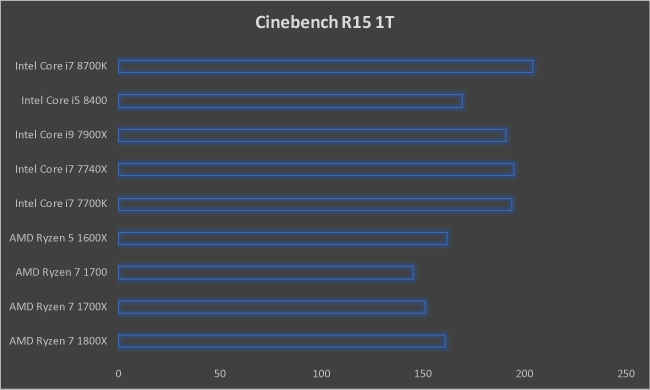

At £360 / $410, it's quite a bit more than the i7-8700K (at least in the US), but that's the kind of jump I was hoping to see between the i7-8700 and its 8700K counterpart. Again, apply better cooling and you'll probably get better results than what I've got here, but even then I'm not entirely convinced it will be worth all the extra expense.Ĭase in point - just look at what I achieved with its 9th Gen successor, the Core i7-9700K, with the very same BeQuiet cooler. I've included some cursory Cinebench scores as a basic indicator of what each CPU will be like for general desktop tasks, but really, my main goal here is to work out what CPU is the best for gaming and gaming alone.Īnd the Core i7-8700K certainly puts in a pretty good performance in this respect - but as you'll see from the graphs below, it's not actually that much better than what I managed with the Core i7-8700. I've also focused a lot more on gaming performance in this review than I have on, say, application performance or media creation bits and bobs because, well, I'm not really interested in that. As a result, getting a truly accurate picture of a CPU's gaming performance is tricky, but I've done the best I can with the equipment available to me. That said, there are also several other factors that can impact gaming performance, such as your graphics card, the type of RAM you've got, and even what type of storage you've installed the game on. Fortunately, a handful of gaming benchmarks have got a lot better at this recently, with the likes of Shadow of the Tomb Raider, Forza Horizon 4, Assassin's Creed Odyssey and more all providing an in-depth look at your CPU's performance as well as what your graphics card's doing. As our friends at Digital Foundry have explained in the past, a lot of benchmarks either don't test your CPU properly, or simply aren't very accurate in the first place. Motherboard: Asus Prime Z370-P (Intel), Asus Prime X370-Pro (AMD)Ĭooler: BeQuiet BK009 Pure Rock (Intel), AMD Wraith Prism (AMD)Īdmittedly, testing any CPU's gaming performance is still a bit of a difficult undertaking. Indeed, the Core i7-8700K's gaming performance sans overclocking is still pretty darn fast in the grand scheme of things, and certainly a heck of a lot nippier than what AMD's top Ryzen 7 2700X is capable of under the same conditions. Any faster and my PC would immediately crash.Īs a result, you're going to need a much more substantial cooling solution to get the best out of the Core i7-8700K, but that's not to say it's not worth considering if you've only got a standard tower cooler like I do. When I tried overclocking the Core i7-8700K with my BeQuiet BK009 Pure Rock cooler, for example, I wasn't able to push its max Turbo Boost speed any higher than its default speed of 4.7GHz. The key difference, however, is that the 8700K is unlocked for overclocking, giving it more potential for faster multi-tasking performance and nippier gaming speeds. Like Intel's Core i7-8700 before it, the Core i7-8700K is a six-core, twelve thread gaming CPU. Both CPUs, however, are still relatively expensive compared to the i7-8700K, so is this £345 / $350 processor still worth seeking one out for your next PC build? Here's wot I think. Once the six-core king of the bestest best gaming CPUs, the Core i7-8700K has since been dethroned by both its immediate 9th Gen Coffee Lake successor, the Intel Core i7-9700K, and Intel's new super duper Core i9-9900K. Cache and memory bandwidth and latency affect the score as well.Here it is, the big daddy of Intel's 8th Gen Coffee Lake gaming processors. This benchmark is multi-threaded, but is also dependent on platform bandwidth, so the final results are not determined by compute performance alone. The benchmark score is reported as a CFD cycle frequency in Hertz. The benchmark executable advances a mach 0.50 Advisory Group for Aerospace Research, or AGARD, flow solution for an aeroelastic test wing. STARS Euler3d is a computational fluid dynamics benchmark which uses a CFD grid that contains 1.23 million tetrahedral elements and 223 thousand nodes. The Core i5's 6 physical cores also outpaced the Core i7-7700's quad-core / 8-thread configuration here. Here, the Ryzen 7 1800X once again outpaces the Core i7-8700K in the multi-threaded benchmark, but the 8700K dominates Ryzen 7 in the single-threaded test.

POV-Ray tells a similar story to Cinebench. Results are measured in pixels-per-second throughput higher scores equate to better performance. We tested with POV-Ray's standard 'one-CPU' and 'all-CPU' benchmarking tools on all of our test machines and recorded the scores reported for each. POV-Ray, or the Persistence of Vision Ray-Tracer, is an open source tool for creating realistically lit images.


 0 kommentar(er)
0 kommentar(er)
